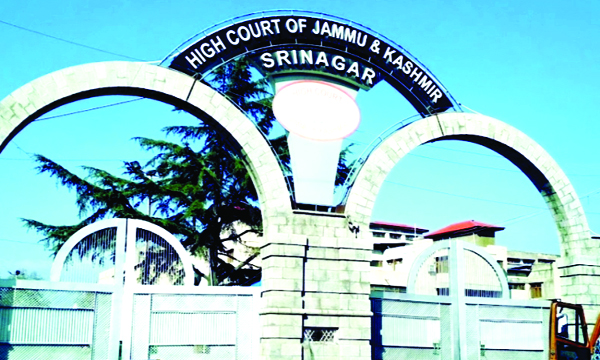DOGRA HERALD BUREAU
jammu, Dec 23
The High Court of Jammu and Kashmir and Ladakh has categorically held that women advocates cannot appear before the court with their faces covered, citing clear provisions under the Bar Council of India (BCI) rules.
These observations arising from proceedings before Justice Moksha Khajuria Kazmi and Justice Rahul Bharti, emphasised that the Bar Council of India (BCI) rules governing the dress code for advocates do not permit such attire and stressed the importance of maintaining decorum and professional identification in courtrooms.
The matter was triggered when a woman identifying herself as advocate appeared before the court wearing a face cover. Upon being requested to remove it for identification, she insisted that it was her fundamental right to appear in such a state of attire. This led the court to direct the Registrar General of the High Court to confirm the legal and rule position regarding the dress code for advocates.
Upon submission of the report to this effect the court scrutinized the legal framework under the BCI rules, specifically Chapter IV (Part VI), which prescribes the dress code for advocates appearing before courts.
The court noted that according to these provisions, women advocates may wear black full-sleeve jackets or blouses, white bands, sarees, or other subdued traditional attire, along with a black coat. However, there is no mention or allowance for the inclusion of face coverings as part of the prescribed courtroom attire, the court pointed.
“It is nowhere stated in the rules that any such attire (face cover) is permissible for appearing before this court.”, Justice Kazmi remarked.
Underscoring the practical and legal challenges posed by advocates appearing with covered faces Justice Bharti in another order emphasized that the court requires clear identification of advocates to maintain the sanctity of judicial proceedings. By refusing to comply with the request to remove her face cover, the individual had rendered herself unidentifiable, thereby compelling the court to decline her appearance as an advocate, the court stated.
In his interim order Justice Bharti stated,
“This court has no basis/occasion to confirm her actual identity both as a person and as a professional.”
The court further warned the petitioners that their case could be dismissed for non-prosecution if proper representation was not ensured.



























